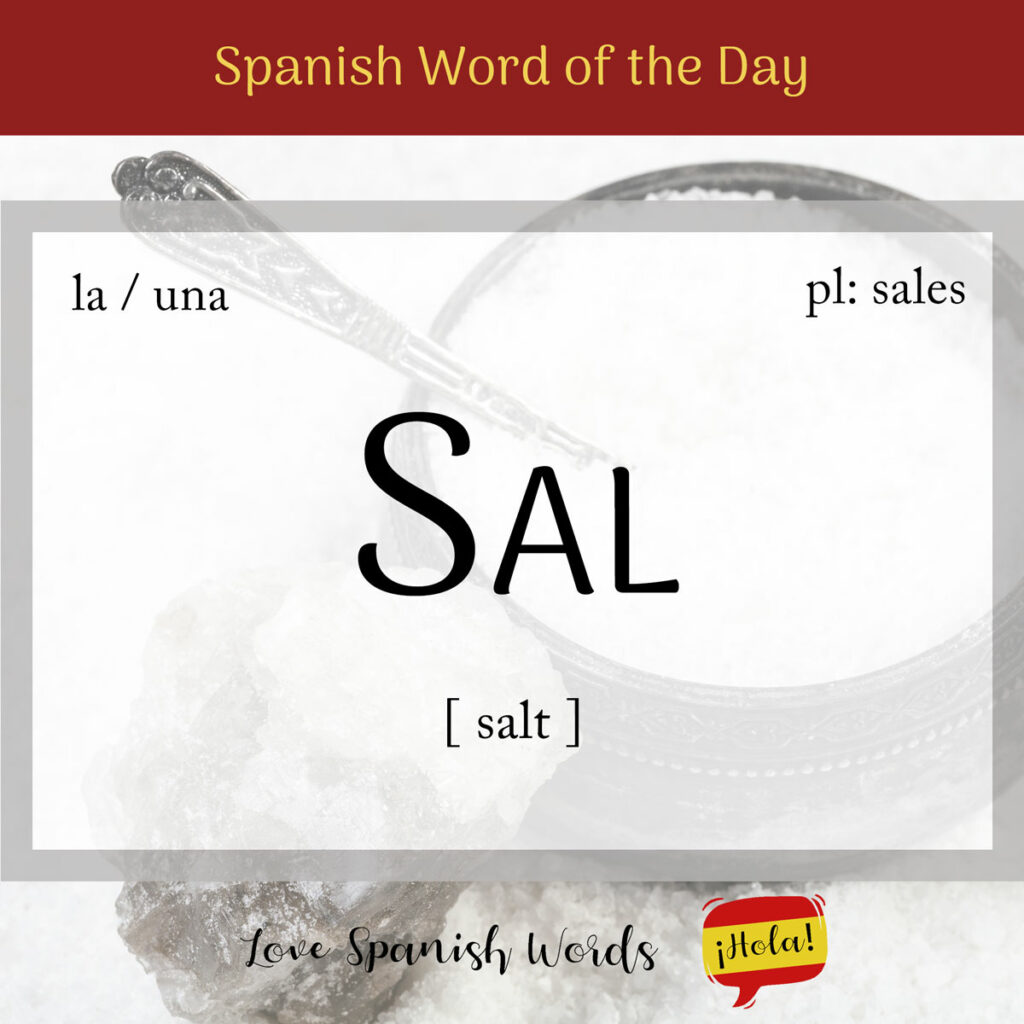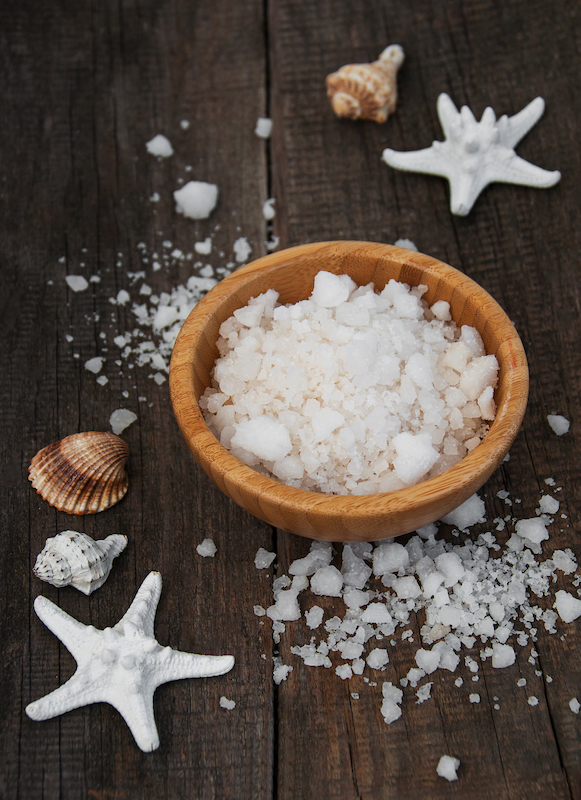What is one cooking ingredient that make even the blandest of dishes taste delicious? Why, salt, of course!
Salt translates to sal in Spanish and both words can be traced back to the Latin sal (genitive salis) of the same meaning.
Latin American Pronunciation
European Pronunciation

Because it is a feminine noun, it takes the following definite and indefinite articles:
- la sal = the salt
- las sales = the salts
- una sal = a salt
- unas sales = some salts
¿Me pasas la sal por favor?
Would you pass me the salt, please?
Here are some different kinds of salt with which you might be familiar:
- sal común / de cocina = cooking salt
- sal gema / de roca = rock salt
- sal de mesa = table salt
- sal de ajo = garlic salt
- sal condimentada = seasoned salt
- sales volátiles / aromáticas = smelling salts
- sal gorda / gruesa = coarse salt
- sal marina = sea salt
- sal de apio = celery salt
- sulfato de magnesio / sal de fruta / de la Higuera / sal inglesa = Epsom salt
- sales minerales = mineral salts
- sales de baño = bath salts
A grain of salt is known as un grano de sal in Spanish, whereas a pinch of salt can be translated as una pizca de sal.
If you want to describe something that is salt-free or unsalted, you can use the words sin sal (literally “without salt”) or no salado (literally “not salted”).

Figuratively speaking, sal and the adjective salado (salty) can also mean witty or charming in Spanish.
Él tiene mucha sal.
(literally “he has a lot of salt”)
He has a great deal of wit.
In Latin America, particularly in Mexico, however, sal also carries a negative connotation when used figuratively, referring to a piece of bad luck or misfortune. From this we get the Mexican expression echar la sal (literally “to throw the salt”) which means to jinx, to bring bad luck, or to hex.
What does sal have to do with bad luck, you might ask? Well, according to the Livit Immersion Center, salt equated to wealth and influence, serving as a form of currency in certain Mayan societies and later becoming a commodity in large-scale industries after the arrival of the Spanish colonizers. It also held great religious importance. This meant that “spilling salt” was tantamount to financial loss or even ruin.
¡No me eches la sal!
Don’t jinx me!
Similarly, the adjective salado (salty) can mean unlucky or unfortunate in Latin American Spanish.
La sal de la tierra (the salt of the Earth) is a metaphorical expression used to describe individuals or groups of people who are distinguished by their honesty and reasonableness.
The phrase tomarse algo con un grano de sal is an idiomatic expression in Spanish. When translated to English, it becomes to take something with a grain of salt. This expression conveys the idea of being skeptical or cautious about accepting information as true or accurate.
Whereas we would say the spice of life in English, in Spanish you will hear la sal de la vida (literally “the salt of life”).
Finally we come to para echar sal en la herida, which literally translates to “to pour salt on the wound” but equates to the English idiom to add insult to injury.

